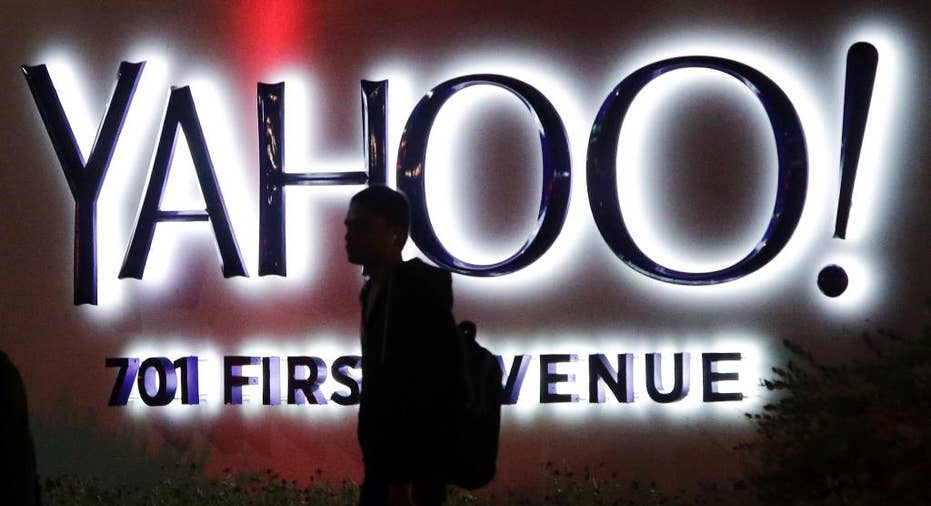Yahoo CEO Marissa Mayer's turnaround plan to come under greater scrutiny without Alibaba

SAN FRANCISCO – Yahoo CEO Marissa Mayer is losing a precious security blanket now that she is spinning off the Internet company's prized stake in China's Alibaba Group.
The breakup announced Tuesday will transfer ownership of 384 million shares of Alibaba stock, currently worth $39 billion, into a new entity called SpinCo. Those holdings, part of an astute investment made nearly a decade ago, represent the main reason that Yahoo's stock has more than tripled since Mayer became CEO two-and-half years ago.
Investors viewed Yahoo as another way to own a piece of Alibaba, a rapidly growing e-commerce company that is expected to become even more successful during the next decade as more of China's population gains online access through smartphones and other devices.
As long as there was a link to Alibaba, it almost didn't matter that Yahoo's own digital services have been struggling to generate more revenue during the past six years, even as advertisers have been pouring more money into digital marketing.
With the Alibaba stake jettisoned by the end of the year, Mayer will be under greater pressure to prove she can rejuvenate one of the Internet's oldest and best-known companies.
"The heat is on," Outsell Inc. analyst Randy Giusto said. "This (spinoff) exposes the fact that Yahoo still is not growing in key areas where it has been investing."
ANOTHER HO-HUM QUARTER
Fresh evidence of the challenges facing Mayer emerged Tuesday with the release of Yahoo's fourth-quarter results. Earnings fell 52 percent from last year while Yahoo's revenue dipped 1 percent.
It marks the eighth time in Mayer's 10 quarters as Yahoo's CEO that the company's revenue has declined from the previous year.
BANNER BLUES
Yahoo's problems largely stem from its inability to adapt to the declining use of banner ads as more people spent their free time gazing into the smaller screens of smartphones and tablets instead of desktop and laptop computers. Analysts credit Mayer for overhauling Yahoo's mobile apps and sharpening the focus on smartphones and tablets, but it still hasn't been enough.
After subtracting commissions, Yahoo's display ad revenue declined 5 percent from the previous year in the fourth quarter.
Advertising tied to Internet search results — a bright spot in recent quarters — barely budged from the previous year at $462 million in the fourth quarter.
BETTER TIMES AHEAD?
The fourth quarter included the start of a deal that makes Yahoo the default search engine on Firefox's Web browser in the U.S. until late 2019. Yahoo replaced Google on Firefox, and Mayer told analysts Tuesday she hopes to do it again by persuading Apple Inc. to switch to Yahoo's search engine on its Safari browser for the iPhone and iPad.
"We are all here to return an iconic company to greatness," Mayer said of her vision for Yahoo.
Don't expect that to happen during the current quarter ending in March. After subtracting commissions, Yahoo predicted its first-quarter revenue will fall in the range of $1.02 billion to $1.06 billion — slightly below the company's performance at the same time last year.
A LESS TAXING STRATEGY
The Alibaba spinoff will give Yahoo's current shareholders stock in SpinCo, which will be designated as a registered investment company. The breakup is an attempt to ensure that most SpinCo shareholders profiting from future sales of Alibaba stock will be taxed at a lower rate than Yahoo Inc. would have paid had it held on to the stake, said Mark Luscombe, principal federal tax analyst for Wolters Kluwer Tax & Accounting.
Yahoo Inc. invested just $1 billion in Alibaba nearly a decade ago, a bargain that slapped the company with massive tax bills as it whittled its stake during the past three years. Without the spinoff, Mayer estimated that Yahoo's tax bills on its Alibaba stake would have been about $16 billion, based on Alibaba's current market value.
It might sound like another way for a large company to dodge taxes, but there is nothing wrong with the maneuver under U.S. law, said Don Williamson, professor of taxation at American University's Kogod School of Business.
"Some people would call it a loophole," Williamson said. "Others would call it a more efficient way of doing business."
Yahoo stockholders showed their approval: The company's shares gained $3.21, or nearly 7 percent, to $51.20 in extended trading.



















